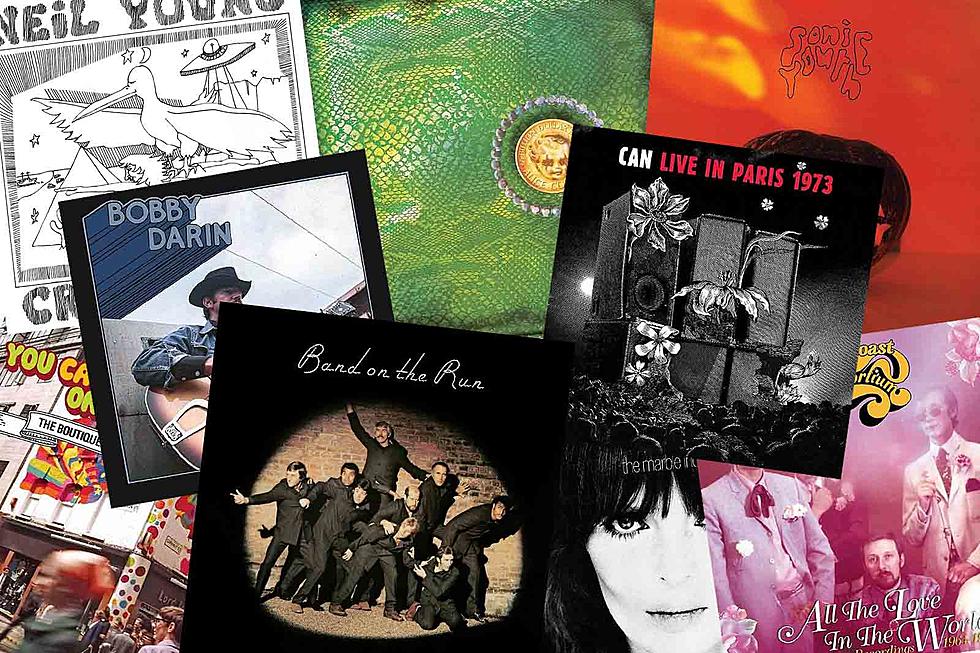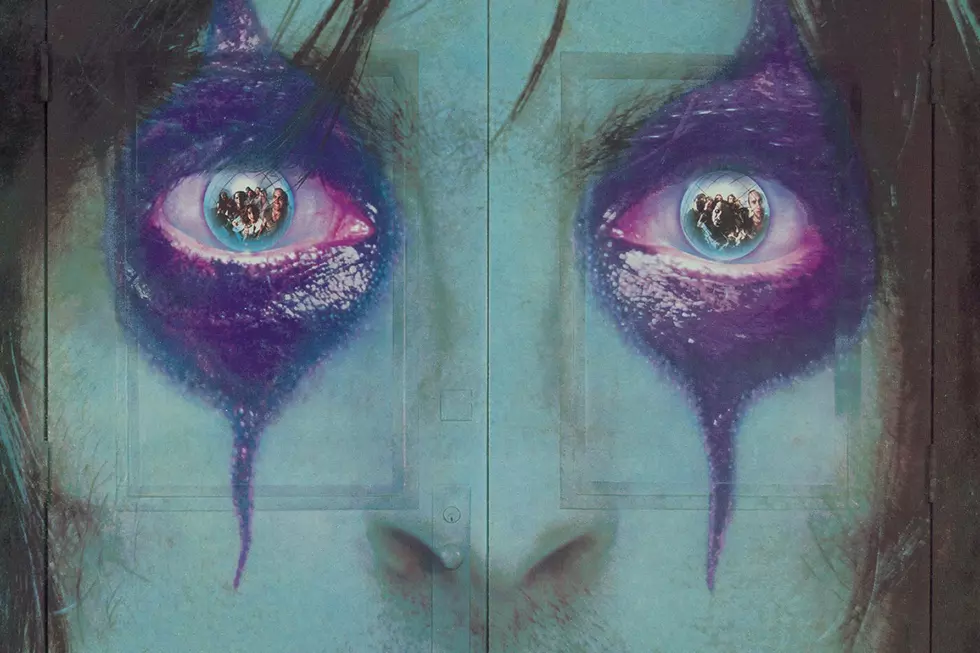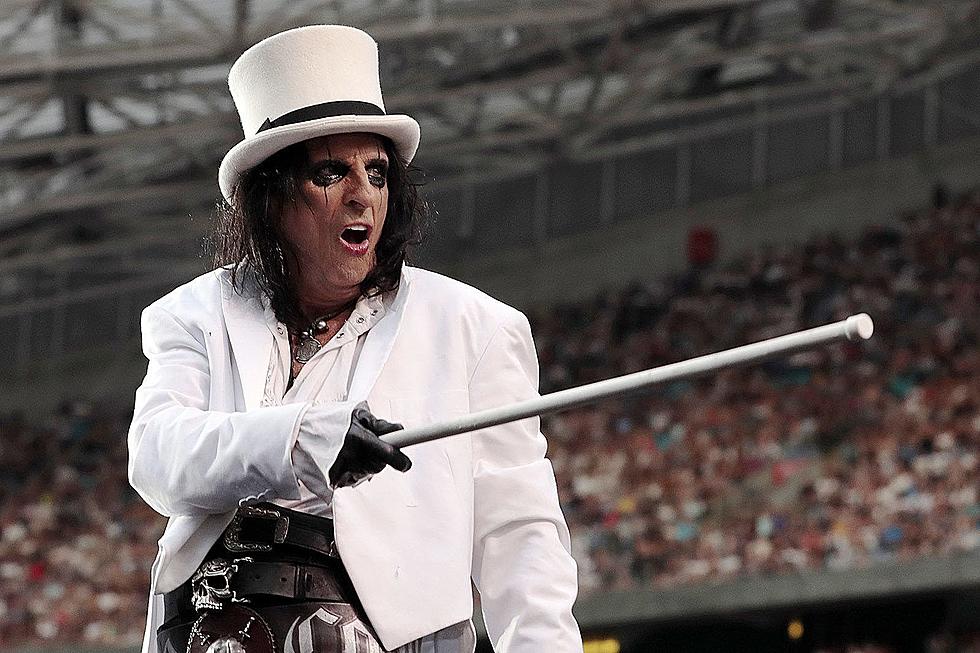
Exclusive: Alice Cooper On The ‘Super Duper’ Film, Fighting Addiction And Music Vs. Theatrics
Alice Cooper has always marched to the beat of his own drum, so it makes perfect sense that a new documentary about his life is also atypical.
'Super Duper Alice Cooper' -- which starts playing in select theaters in the U.S. on April 30 -- is a highly stylized film about his transformation from preacher's kid Vincent Furnier into highly influential shock rocker Alice Cooper. Along the way, 'Super Duper' uses footage of kitschy horror films and an extended metaphor about Jekyll and Hyde to discuss Cooper's rise in popularity and subsequent run-ins with addiction to alcohol and cocaine.
Wisely, though, directors Reginald Harkema, Sam Dunn and Scot McFadyen also include plenty of vintage concert and interview footage of Cooper, which makes the documentary a riveting, entertaining watch. Cooper himself took some time to chat with Ultimate Classic Rock, offering additional insights into 'Super Duper Alice Cooper' ...
I wanted to talk to you about the awesome documentary you have coming out ...
They came to us and said, "If we're going to do a documentary on Alice, it has to be as theatrical as the character himself." And I agreed with them. They went with this Jekyll and Hyde motif. We avoided all the stereotypical documentary things, and it really makes it interesting.
I was going to ask how much input you had in it -- how collaborative it was.
They did come in with the idea of the Jekyll and Hyde thing, and I said, "Boy, I love that. I love the idea that you've picked up on the fact that there's me -- and then there's the character I play." It's sort of Anthony Hopkins and Hannibal Lecter. Myself and the character Alice Cooper are absolute opposites. That's what they went with on the documentary. And they kind of hit on the fact that which one had the problem with the alcohol and everything. It ends up that it was me, not the character. It wasn't the monster -- it was Dr. Frankenstein.
Was it difficult for you reliving those times? The documentary was very honest and unflinching in terms of looking back at all the problems you've had over the years.
I found that the more uncomfortable parts were the best parts. It was great to see how the bands became what it was and how the audience embraced it and said, "Wow, it's great to have a villain in rock." And the records all sold and everything like this, but there's always going to be that gigantic bump in the road.
I didn't see the alcoholism coming. I didn't see it at all. I just figured everybody drank beer at eight in the morning. And when you're in a rock band in the '70s, that was normal! I didn't realize it was a problem until I realized it was more like a medicine to me. I was drinking in order to get something done, rather than just drinking it out of fun. That's when it becomes an alcoholism problem. It's not what you drink; it's why you drink.
We had to handle all that. And I didn't have any problem opening my life to that. And of course, later on down the line, I had to be very honest about the cocaine use. I never talked about that before, and yet I said, "It's part of the story. You can't ignore it. It happened." You had to cop to it.
The most uncomfortable moment in the movie for me -- you have to remember now, the original Alice Cooper band, with Neal [Smith, drummer] and Dennis [Dunaway, bassist] and everybody, we went to high school together; we went to college together; we starved together; we made it together. And we all had different versions of why the band broke up. Well, I wasn't going to edit that out; I wanted Neal's version, I wanted Dennis' version.
During the Tribeca Film Festival, I'm sitting with Neal and Dennis when it's playing! And we just kind of looked at each other and started laughing, because we've never been enemies. There's never been a lawsuit. There's never been anything. We've always just understood that we all moved away from each other.
That's a very mature thing. You don't find many bands who are able to view it that way.
Well, and it was really a thing where Dennis and Neal are still two of my best friends in the world. We do charity gigs together and things like that. There's still my other band; Neal and Dennis and Mike [Bruce, rhythm guitarist] are the three survivors -- [lead guitarist] Glen [Buxton]'s not with us anymore -- but if there's ever somebody who says, "Can you put the original band together and come and do a charity thing?" we go, "Yeah, absolutely."
The archival footage in the movie is one of the best parts of it.
You know, it's funny -- the production was very important to me. If we had an eight-hour rehearsal, it would be seven hours on the music. We would spend seven hours to make sure that music was dead-on. In order to do the theatrics, you can't have icing on the cake without having the cake. So to us, the music was more important than the theatrics. The theatrics came easily to us. That became a natural thing. If you say, 'Welcome To My Nightmare,' you don't just say it -- you give 'em the nightmare! They produce it onstage and say: "Let's make this nightmare come to life now."
More From Ultimate Classic Rock









